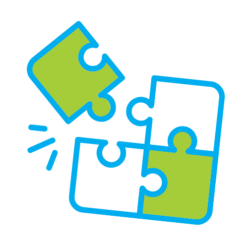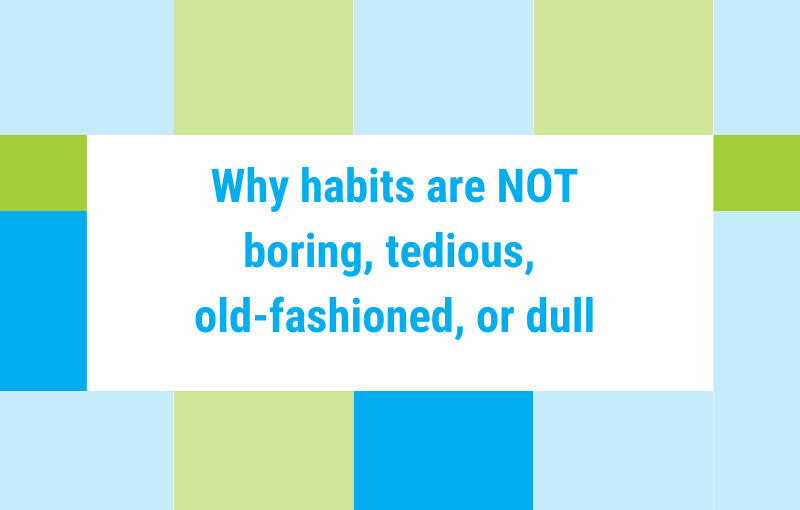The general purpose of habits – Habits help us survive
Habits are not boring or tedious or old-fashioned or stuffy – habits are necessary, effective, and efficient strategies that help us survive and flourish.
Our brain would get overwhelmed and finally collapse if it always had to deliberately choose what to do in a specific moment. We wouldn’t be able to use our brain for high-level cognitive processes if it had to take care of all the nitty-gritty situations and events in our daily life.
About 45% of our daily actions and behaviours are unconscious habits: actions and behaviours that we do on default, without thinking about them.
By taking regularly required behaviours and organising them into habits that get automatically activated when needed, the brain (the survival manager) helps us save energy. (Read more about the two parts of the brain here.)
And we gain precious free space and capacity in our conscious mind that we can use for more demanding cognitive work (the responsibility of the growth manager).
The purpose of intentional habits – Habits help us change and grow
Making decisions ahead of time makes life easier – for us and for our brain.
We can support our brain (here: the survival manager) in its energy-saving intentions by deliberately deciding how we want to behave in a specific situation.
We then consistently practice the desired behaviour and make it become a habit.
Whenever the specific situation comes up, we no longer need to think and decide about it (usually the growth manager’s job) because our brain knows what to do – and it automatically initiates the now habitual behaviour.
Deliberately practicing new behaviours helps our brain overcome its focus on the past.
Our brain is past-focused. It uses past experiences to predict the best suitable behaviour in the present moment.
So, if we relied only on the suggestions that our brain is bringing up – based on behaviours that have been successful in the past – we would never try something new and never change.
If we want to create different experiences and results in our life, we need to take the initiative and tell our brain about the new direction we want to take.
We focus on a goal that’s important to us. And we deliberately choose and practice a set of new behaviours that will enable us to achieve the goal.
This helps our brain to redirect its attention from the past (our old/current behaviours) to the future (our desired new behaviours).
By repeating new behaviour and thinking patterns we actively create effectful changes in our brain and sustainable changes in our life.
Choosing new behaviours and thinking patterns and practicing them deliberately and repeatedly means that we take actively advantage of our brain’s plasticity.
If we create new habits, we create changes in our brain which result in changes of capabilities, skills, long-term behaviour.
The more regularly we do what we deliberately decided to do, the less we have to think about it (which helps us save cognitive energy), the easier it becomes, the more we do it, etc.

